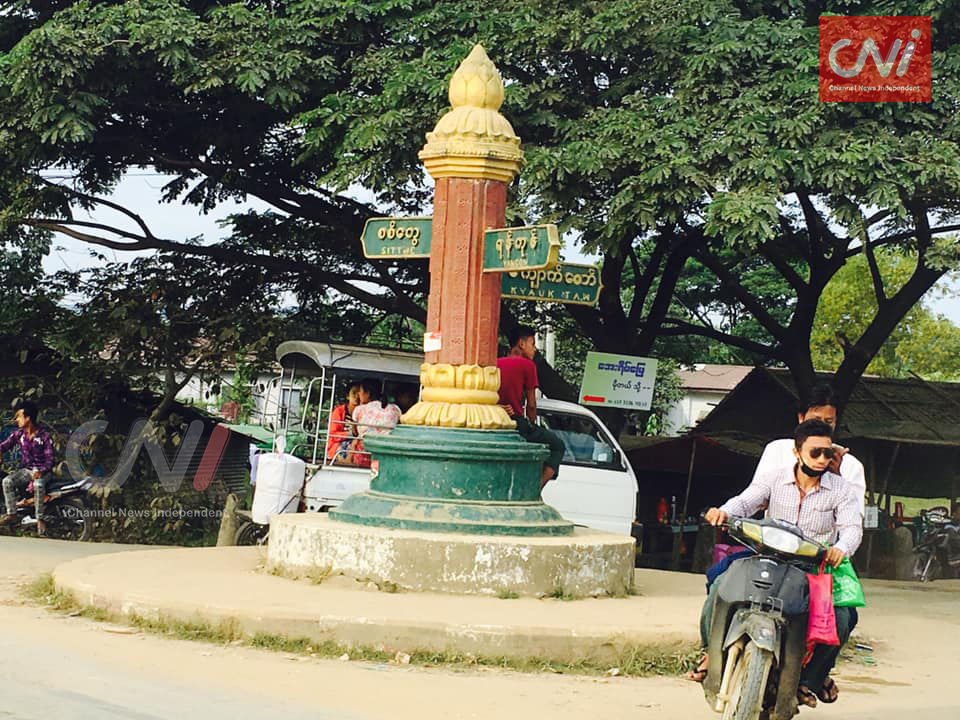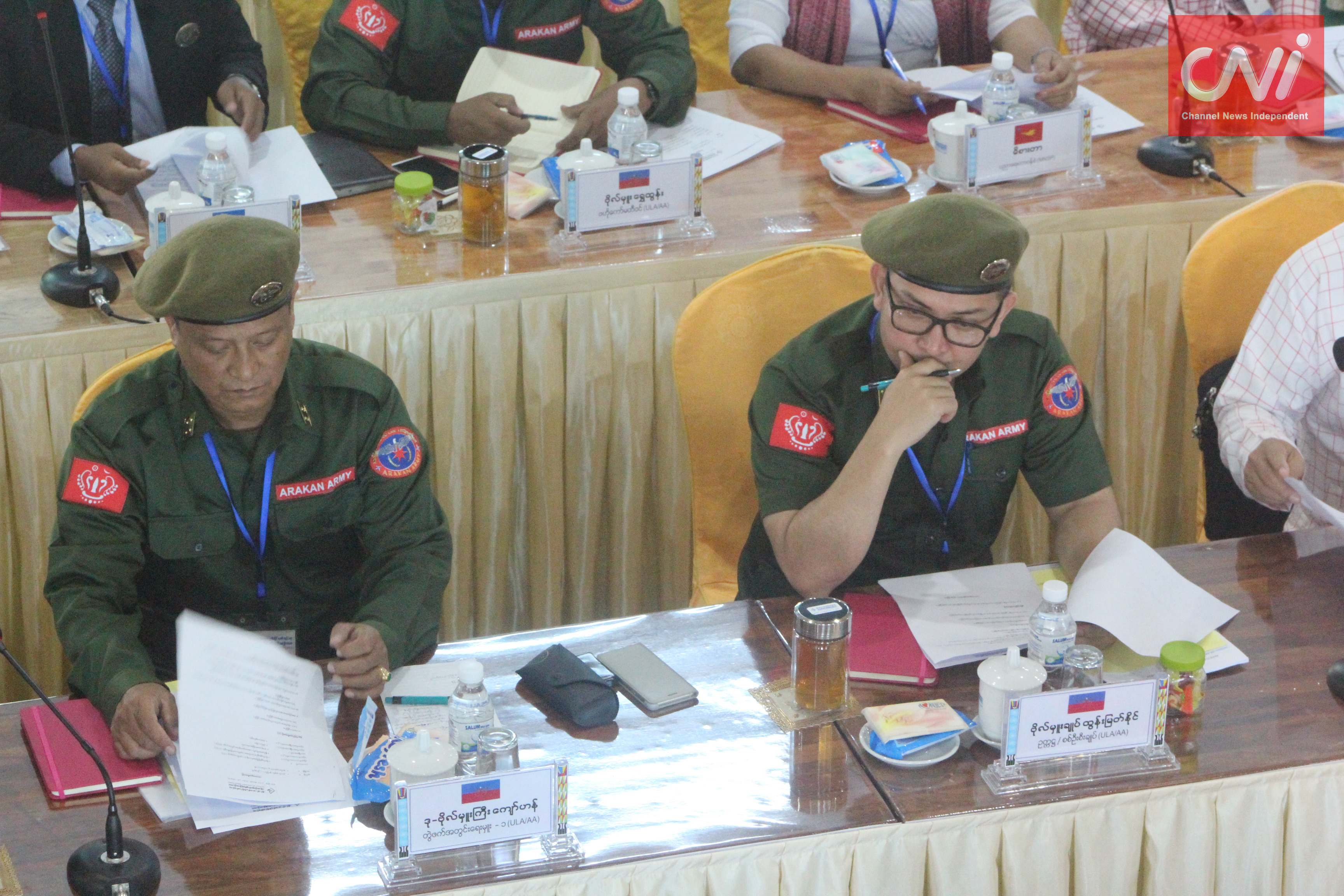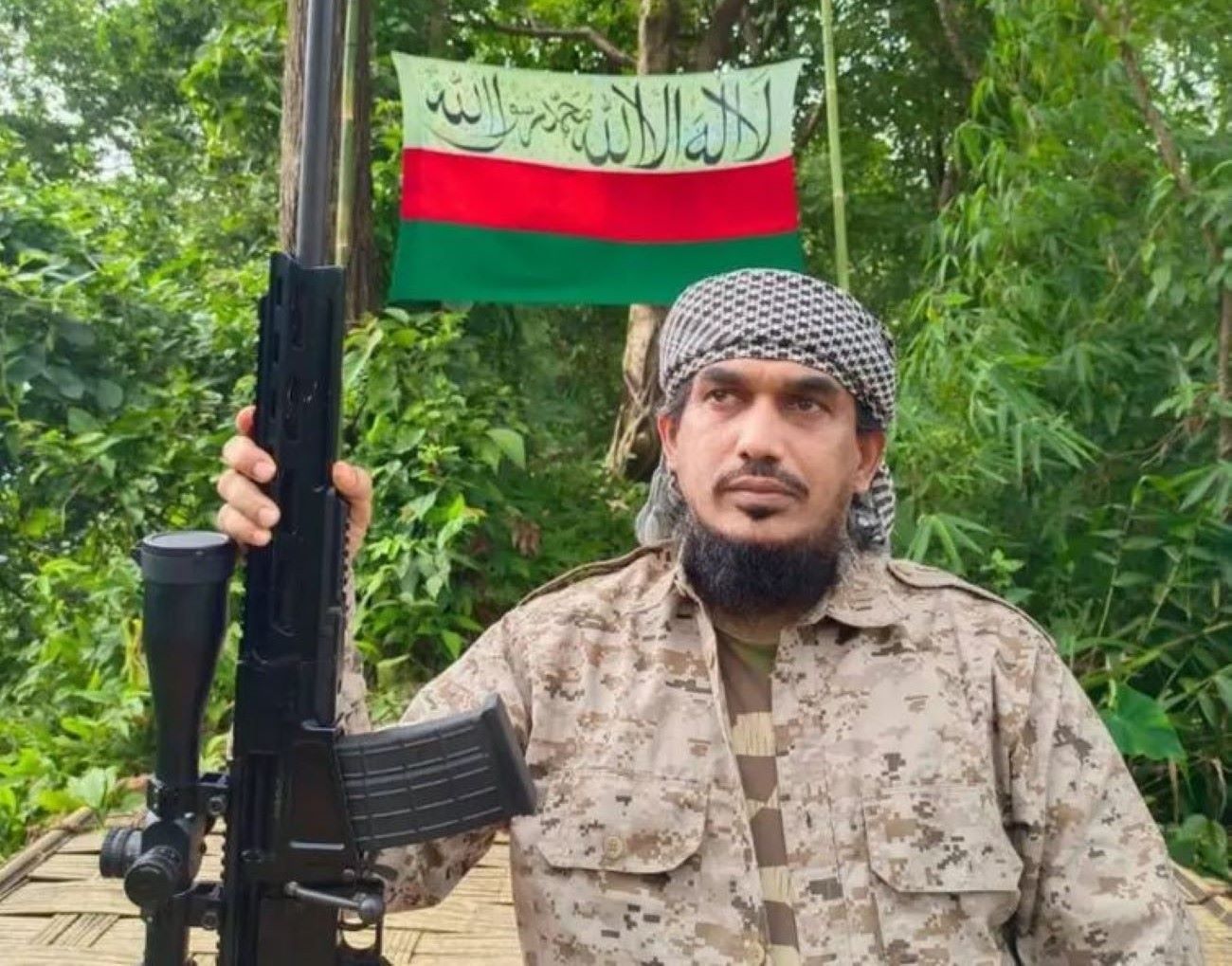CNI News
29 October 2025
Due to the widening attacks by the Muslim armed group ARSA (Arakan Rohingya Salvation Army) in Maungdaw and Buthidaung, Rakhine State, analysts are discussing why the group has become active again in northern Rakhine.
Observers say that ARSA may have returned to Rakhine after suffering setbacks and fragmentation in other regions. They note that the Arakan Army (AA) now controls more than half of Rakhine State, leaving ARSA with limited prospects elsewhere, which may have prompted it to re-emerge in the region.
U Myo Kyaw from the United Nationalities Alliance (UNA) told CNI News:
“ARSA receives backing from some Islamic countries. Globally, Islamic migration is widespread, and conflicts involving them exist in various places. When they face defeats or fragmentation in other regions, they tend to return to areas like Rakhine within Myanmar to rebuild their strength. Previously, they could maintain their presence under the cover of diplomatic, international human rights, and humanitarian issues without much military confrontation. But now, since the Arakan Army controls almost all of Rakhine, ARSA may see its long-term prospects as unfavorable and is attempting to reassert itself.
At present, the Rakhine forces are fighting against the military regime on one side, while on the other, ARSA and ARSO are striking from behind. This could be seen as a two-front war aimed at weakening the Rakhine revolution so that ARSA can seize the opportunity to replace it.”

A crossroads inside Rakhine State
According to local administrative sources, around 50 civilians have been killed between May and October 2025 in Maungdaw and Buthidaung due to ARSA attacks.
On October 22, ARSA ambushed a passenger vehicle near Myoyu village, Maungdaw Township, killing two women from Setibyin village, Rathedaung Township, who were returning from shopping, the AA reported.
Military and political analysts note that ARSA’s activities in Rakhine have intensified in 2025 and that the group primarily targets civilians.
There are also reports that ARSA and ARSO are operating with the support of Bangladesh’s Border Guard (BGB), infiltrating Maungdaw District through routes along the Naf River and the Mayu mountain range.
According to U Thein Tun Oo, Executive Director of the Institute for Strategy Studies, these developments stem from not being under the control of central government in the area:

Arakan Army leaders seen during a meeting
“Since the 2018 crisis in northern Rakhine, analysts have warned that conflicts could grow if central administration and control disappear. Although the AA claims control over the northern parts of Rakhine, it does not function as a fully authoritative government. Therefore, when another armed group with comparable strength emerges, such clashes are inevitable.”
The extremist Islamist militant groups ARSA and ARSO have reportedly been threatening local civilians along the Myanmar–Bangladesh border, seizing property and instilling fear.
In response, the Arakan Army (AA) has warned civilians in border areas not to travel alone or in small groups through forests and remote regions.
If travel is absolutely necessary, including for medical reasons, the Arakan People’s Revolutionary Government has urged residents to inform the nearest local administrative or security forces beforehand.
Regarding ARSA and ARSO attacks, the Bangladesh interim government has recently been urged by the Arakan Army to find bilateral cooperation mechanisms to prevent further escalation and promote coordination.




